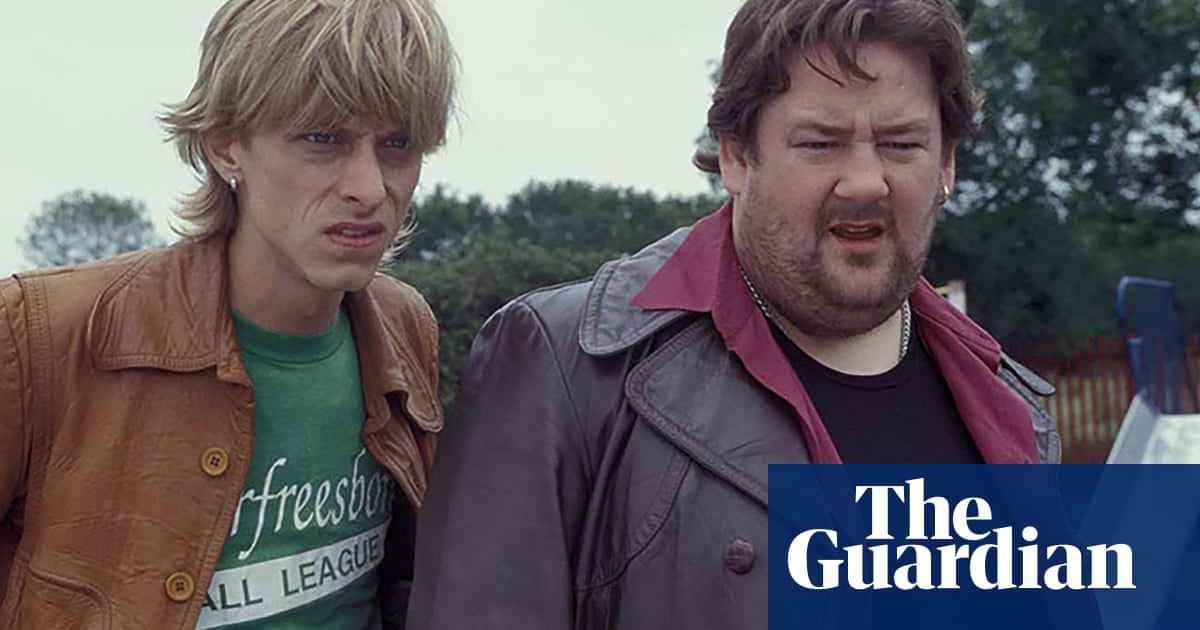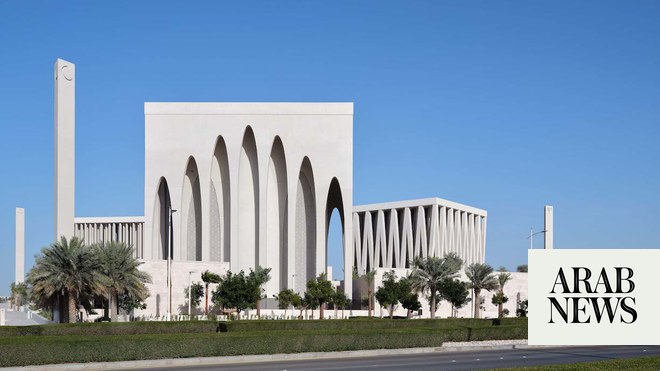
When the Egyptian director Ayten Amin was 10 years old, a classmate’s sister killed herself. The news gripped the school. But, in a society where suicide is a sin, no one talked about it; instead, they mourned the girl as though she had died mysteriously, or in an accident. “When I was shooting my first film, it suddenly hit me,” Amin says over a video call from her home in Cairo. “How did my classmate feel back then? How did she grow up knowing what happened, but with no one talking about it?”
In her new film, Souad, Amin explores precisely this: the hidden lives of teenage girls in Egypt. It follows the title character (played by Bassant Ahmed) and Rabab (Basmala Elghaiesh), sisters of 19 and 13 living in Zagazig, a small city 40 miles north of Cairo in the Nile delta. To her family and friends, Souad is as religious as she is studious – but she lives a different life online. She has virtual relationships with men and becomes enthralled by the glamorous-seeming Ahmed (Hussein Ghanem), an influencer from the fashionable Mediterranean city of Alexandria. Their relationship begins to sour when Souad stands up Ahmed for a real-life date; it gets steadily worse as a cycle of sexts and arguments sets in. Then tragedy strikes.
“She sent him photos without her veil and she feels insecure,” says Amin. “She’ll say: ‘Delete them all,’ and they argue, even though he isn’t going to do anything anyway. She feels guilty and ashamed. So she prays, but goes back to talking to him, and she prays again. Then she’s having phone sex with him, then she’s crying, then she wants to talk to him. She’s up and down.”
Co-produced by Wim Wenders and selected for Cannes last year (a first for a female Egyptian director), Souad has drawn comparison to films such as The Virgin Suicides and Ingrid Goes West for its razor-sharp portrayal of young women and the pernicious ways in which social media interacts with their fragility.
Amin has long been interested in understanding what it means to be a young person – especially a young woman – in modern Egypt. Her first feature film, Villa 69, focused on a family thrown back together when the father becomes ill (it was loosely based on her own life). She was one of four directors of the documentary Tahrir 2011, which focused on the 18-day uprising when Egyptian youth movements ousted the president, Hosni Mubarak. But perhaps most comparable to Souad is her breakout short film, Spring 89, which followed two young girls lying to each other about their imaginary romances.
Anyone who has ever been a teenage girl, or parented one, will recognise Souad’s resonant characters – from the ease with which they lie to their parents to the frequency with which they compare themselves with each other. It is all, as Souad’s generation might call it, very relatable. “Even I can relate to the characters and I’m not their age; I didn’t have the internet growing up and didn’t have to worry about social media,” says Amin. “But I relate to their identity crisis – and that you have to project an image to get accepted.”
Consider the opening scene. Souad takes a long bus journey and chats to the various passengers who sit next to her, telling each a completely different story about who she is, spotting which version of her they would like to hear and happily offering it. “Something funny happened when I was developing the script,” Amin says. “I was in a script workshop in the US; the others in the workshop were mainly Americans. One of them points out: ‘All the characters in your script lie. Your society is all about the lies.’ I hadn’t even noticed that they all lie, because that’s the norm.”
Indeed, it is this sense of the normal and quotidian that Souad captures so well. It is evocatively ordinary, from the dialogue about chores and snarky teen chatter to the constant background sounds of street life, car horns and the call to prayer. Most of the cast are not professional actors; the script was developed through interviews with young women to capture their vernacular.
“My co-writer, Mahmoud [Ezzat], he’s a poet and a bit of an influencer. He had lots of followers who were girls from small cities, who were infatuated by us because we work in film and live in Cairo. So we started contacting his followers and meeting them for an audition. They’d come to Cairo for a day and we’d interview them, improvise with them, for around three hours. We started writing the script out of these conversations.”
Once the cast and loose script was in place, the work continued. “For rehearsals, I’d visit the actors in their homes outside Cairo and tell them what happens in the scene. They’d improvise around it, then they’d do it using only the words in the script, then a mix. All the time, I’d be recording on my mobile. Then I’d take the footage back to my screenwriter and we’d watch it and adapt the script. We did that for six months.”
Why did she choose non-actors? “I didn’t want actors. I wanted it to have a feel of a documentary so that you question whether they’re real or not. Actors wouldn’t have had as much input as the cast we chose did. They feel everything we’ve written.”
Amin’s documentary experience certainly paid off. Souad is determinedly not sensationalist. Amin resists passing judgment on the characters, even the women and girls who police other women. “I’m interested in how this notion that women are somehow ‘less’ corrupts women so they can be so mean to each other – not because they’re bad people, but because it’s all they know. It’s how they survive and it’s how they feel special,” she says.
The film also resists judging the only male character, Ahmed, even when he moves on to Yara (Carol Ackad), a glamorous, unveiled woman from a wealthy neighbourhood. “Social status is a big thing here in Egypt. When people decide to get married, they always think about climbing the social ladder,” says Amin. Ahmed and Souad are from the same social class, but have different options based on their gender. “So even though he likes Souad more, he’ll never marry her. He’s not a bad guy. He was brought up in this society with these rules and this is what he knows. He doesn’t question it until later.”
Likewise, Souad and Yara have different options based on their class. “Yara has her problems, but it’s not the same, it’s not conservatism. They have other rules, like marrying wealth and having a good job.”
Although Souad was selected for Cannes in 2020, the pandemic put a halt to any real-life screenings. It hasn’t yet been released in Egypt; instead, it premiered in New York at the Tribeca film festival in June, then screened at Berlin. Amin went to Berlin, “but there was no Q&A and all the other festival events were virtual. So I still don’t know what people’s questions might be.”
The Egyptian pre-release screenings give more of a clue. “We asked samples of girls to watch it. They were crying so much in the film, at many different and surprising moments. They cried a lot during the phone [sex] scene, probably because it reminds them of what they’re doing.” Would those girls have seen their own experience on screen before? “They are not represented at all in cinema. They don’t see themselves, not even in TV.”
As for the classmate that inspired it all, Amin says that, by coincidence, “the week after I started thinking about her, I saw her on the street shopping”. Did Amin finally address the unsaid and ask what really happened to her sister? “No,” replies Amin, with a hint of sorrow. “She was with her children.” At least, with Souad, Amin is starting a conversation with many, many more people.
Souad is released in cinemas on 27 August A season of contemporary Arab cinema runs at BFI Southbank from 27 August–5 October.












